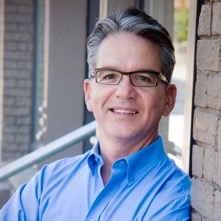About:
Most of the chronic disease in America can be at least partially attributed to the changes in how Americans eat. Industrialization has resulted in more convenient food choices, but at a great expense: our health. During this session, we looked at what has changed in the American diet, the role of inflammation, and how to get back on track by eating foods that nourish our health, rather than feed disease.
Objectives:
> Describe the standard American diet and why it is unhealthy; how we got here.
> Discuss the role of inflammation and altered immune function, as it relates to chronic disease
> What foods feed the fire (inflammation)
> What foods are anti-inflammatory: the new American diet
This event was held at Aquinas College's Donnelly Center.
Speaker:
Dave Johnson, MD, FACC, Integrative Health and Healing, Preventive Cardiology and Medical Director at Grand Rapids Natural Health
Dave Johnson is a board-certified cardiologist with specialized training in integrative medicine from the Arizona Center for Integrative Medicine founded by Dr. Andrew Weil. He applies his scientific knowledge with a holistic approach that aims to restore body, mind and spiritual balance in the healing process.
Moderator:
Laurie DeDecker, RN, DeDecker Consulting, LLC/WoodsEdge Healing
Laurie has been an RN for more than 30 years. She is also an energy therapy practitioner, trainer, healthcare contractor, researcher and medical writer/editor. She is a certified practitioner/trainer in the Healing in America method of energy therapy. Her healing practice includes adults, children and communities. She loves to help people reach their full potential in life through her healing and wellness practice, lecturing, writing, teaching and tribal healthcare. She has served on several nonprofit boards, and as part of her clinical focus she has participated in cancer genetics and public health on a local, state and national level.




















